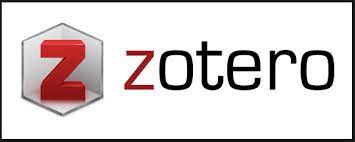ANALYSING EMPLOYEE DEVELOPMENT STRATEGIES THROUGH HRM LITERATURE REVIEW
Keywords:
Strategy, Employee Development, HRM LiteratureAbstract
The analysis of employee development strategies in the Human Resource Management (HRM) literature review highlights the importance of a comprehensive and systematic approach in maintaining organisational competitiveness and growth. Findings show that full support from top management, alignment with organisational goals, and appropriate training programme design are crucial factors. In addition, an organisational culture that supports continuous learning and innovation is considered important in promoting effective employee development. Diverse training methods, such as e-learning, mentoring and hands-on training, can enhance the effectiveness of employee development. Continuous evaluation and follow-up of development programmes are also important to ensure optimal application of skills and knowledge in daily work. Overall, employee development not only contributes to individual growth but also improves overall organisational performance, creates competitive advantage, and prepares the organisation to face future challenges.
Downloads
References
Akingbola, K., Kerekou, S., & Tohon, A. (2023). Employee engagement in nonprofit organisations: The role of perception of HR and organizational culture. Journal of Management Development,42 (3), 215-233. https://doi.org/10.1108/jmd-09-2022-
0232
Alfiyatussholichah, A., Fatchurrohman, M., & Shobikin, S. (2024). HR Development as an Effort to Improve Employee Performance at PT Nandhi Radja Nusantara Surabaya. Journal of Economics, Finance And Management Studies,7 (7). https://doi.org/10.47191/jefms/v7-i7-26
Ali, A., & Tariq, H. (2024). Green persistence: Unravelling the influence of green HR, green corporate strategy and green knowledge on employee persistence in green tasks. VINE Journal of Information and Knowledge Management Systems, Query date: 2025-01-21 20:15:28. https://doi.org/10.1108/vjikms-02-2024-0073
Arseneault, R. (2023). Creating Correlation Tables to Summarise and Identify Patterns in Large Employee HR Datasets. SAGE Publications Inc. https://doi.org/10.4135/9781529629484
Bentum, E. van. (2023). Ganzheitliches HR-Risikomanagement (Roland Franz Erben).
Kennzahlengestütztes HR-Risikomanagement, Query date: 2025-01-21 20:15:28, 23-
50. https://doi.org/10.37307/b.978-3-503-21114-2.02
Dhuru, P., & Mehta, F. (2020). HR Analytics & Employee Relations. Journal of Development Research,13 (3), 15-15. https://doi.org/10.54366/jdr.13.3.2020.15-23
Firman, F.-. (2018). QUALITATIVE AND QUANTITATIVE RESEARCH. Query date: 2024-05-25
20:59:55. https://doi.org/10.31227/osf.io/4nq5e
H, Mrs M. (2024). A Study on Impact of HR Development Practices on Employee Productivity in Banking Sector with Special Reference to Union Bank of India Mangaluru. International Journal of Research Publication and Reviews,5 (1), 5762- 5767. https://doi.org/10.55248/gengpi.5.0124.0370
Holbeche, L. (2022). Crafting HR strategy. Aligning Human Resources and Business Strategy, Query date: 2025-01-21 20:15:28, 134-167.
https://doi.org/10.4324/9781003219996-7
Indrasari, M., & Pamuji, E. (2023). Enhancing Employee Performance through Strategic Initiatives. Journal of Business Management and Economic Development,2 (1), 383-
396. https://doi.org/10.59653/jbmed.v2i01.548
Jaiwant, S. V., & Vazirani, K. (2023). HR Analytics in Employee Engagement and Turnover. Advances in Human Resources Management and Organizational Development, Query date: 2025-01-21 20:15:28, 93-111. https://doi.org/10.4018/978-1-6684-8942- 0.ch007
Jalil, R. (2022). HR DEVELOPMENT: Empowerment Strategy in Improving Employee Performance. PRODUCTIVE: Journal of Personnel and Organisation,1 (2), 62-70. https://doi.org/10.37481/jko.v1i2.70
Jelahut, F. E. (2022). Various Theories and Types of Qualitative Research. Query date: 2024- 05-25 20:59:55. https://doi.org/10.31219/osf.io/ymzqp
Kang, E., & Lee, H. (2021). Employee Compensation Strategy as Sustainable Competitive Advantage for HR Education Practitioners. Sustainability,13 (3), 1049-1049. https://doi.org/10.3390/su13031049
Khatikova, Z. V., & Ryvkina, O. L. (2021). HOTEL HR-BRAND STRATEGY DEVELOPMENT
PECULIARITIES. Construction Economic and Environmental Management,77 (4), 98-106. https://doi.org/10.37279/2519-4453-2020-4-98-106
Kristanti, D., & Churiyah, M. (2024). Marning Siung Mas Kediri MSME Success Strategy in Improving Employee Performance through Competency and HR Development. JEM17: Journal of Management Economics,9 (1). https://doi.org/10.30996/jem17.v9i1.10943
Lee, A.-R., & Ryu, K.-U. (2024). An Analysis of Perception Types on HR Analytics by Corporate HR Practitioners: A Q Methodological Approach. Korean Human Resource Development Strategy Institute,19 (3), 87-118.
https://doi.org/10.21329/khrd.2024.19.3.87
Luo, J. (2023). Employee job satisfaction, job performance and organizational commitment: Inputs to strategic HR development plan. International Journal of Research Studies in Management,11 (9). https://doi.org/10.5861/ijrsm.2023.1116
Panday, P., Shukla, G. P., & Mishra, A. (2024). HR 1.0 to HR 4.0. Advances in Human Resources Management and Organizational Development, Query date: 2025-01-21 20:15:28, 257-268. https://doi.org/10.4018/979-8-3693-9631-5.ch012
Panneerselvam, S., & Balaraman, K. (2022). Employee experience: The new employee value proposition. Strategic HR Review,21 (6), 201-207. https://doi.org/10.1108/shr- 08-2022-0047
Rukadikar, A., & Khandelwal, K. (2023). Artificial intelligence integration in personalised learning for employee growth: A game-changing strategy. Strategic HR Review,22 (6), 191-194. https://doi.org/10.1108/shr-08-2023-0046
Suyitno. (2021). QUALITATIVE RESEARCH METHODS CONCEPTS, PRINCIPLES AND OPERATIONS. Query date: 2024-05-25 20:59:55.
https://doi.org/10.31219/osf.io/auqfr
Voß, E., & Würtemberger, S. (2023). Einführung: Diversity Management in HR verankern.
Vielfalt Im Employee Lifecycle, Query date: 2025-01-21 20:15:28, 1-18. https://doi.org/10.1007/978-3-658-39841-5_1
Westover, J. (2024). Driving Employee Engagement through HR Automation. Human Capital Leadership Review,16 (1). https://doi.org/10.70175/hclreview.2020.16.1.10








